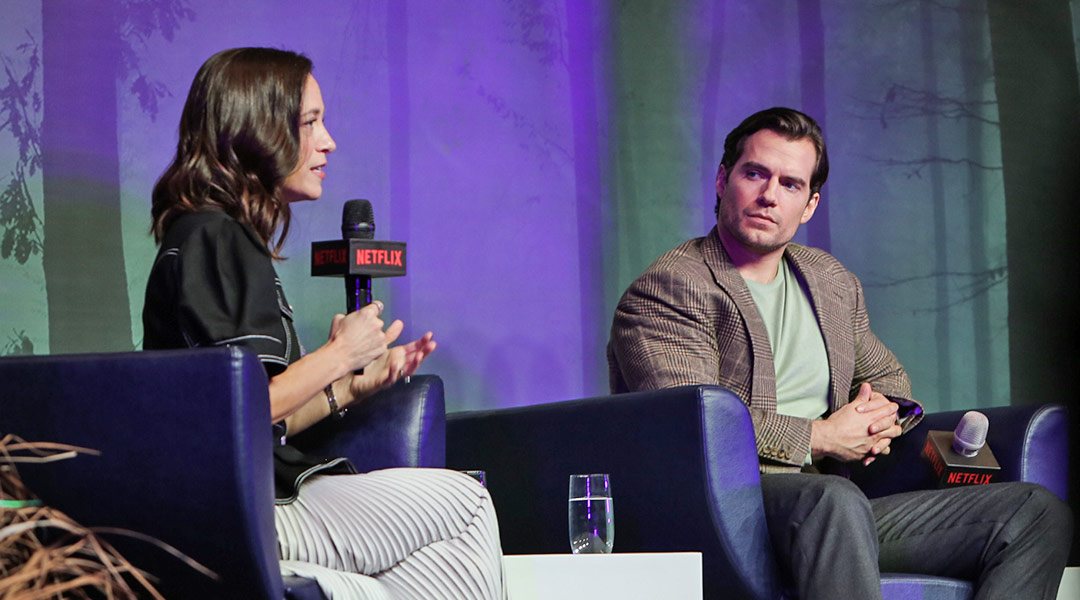Lauren Schmidt Hissrich discusses how the fans played a role in bringing The Witcher to life, the strength of the female characters, and why this fantasy series isn’t much different from the real world.
When TV producer and screenwriter Lauren S. Hissrich was tapped by Netflix to become the showrunner of its adaptation of the popular series of The Witcher, her initial reaction was to turn down the offer.
It’s intimidating to bring to life a show that is so widely known and established. After all, The Witcher is an epic fantasy series that follows the adventures of Geralt of Rivia (played by Henry Cavill in the show), a monster hunter for hire. It has easily become one of the world’s most popular franchises in the fantasy genre, spanning eight books by Polish author, Andrzej Sapkowski, and three wildly popular CD Projekt Red video games. That’s why Lauren’s initial thought was, “I don’t think I’m the right person to honor this.
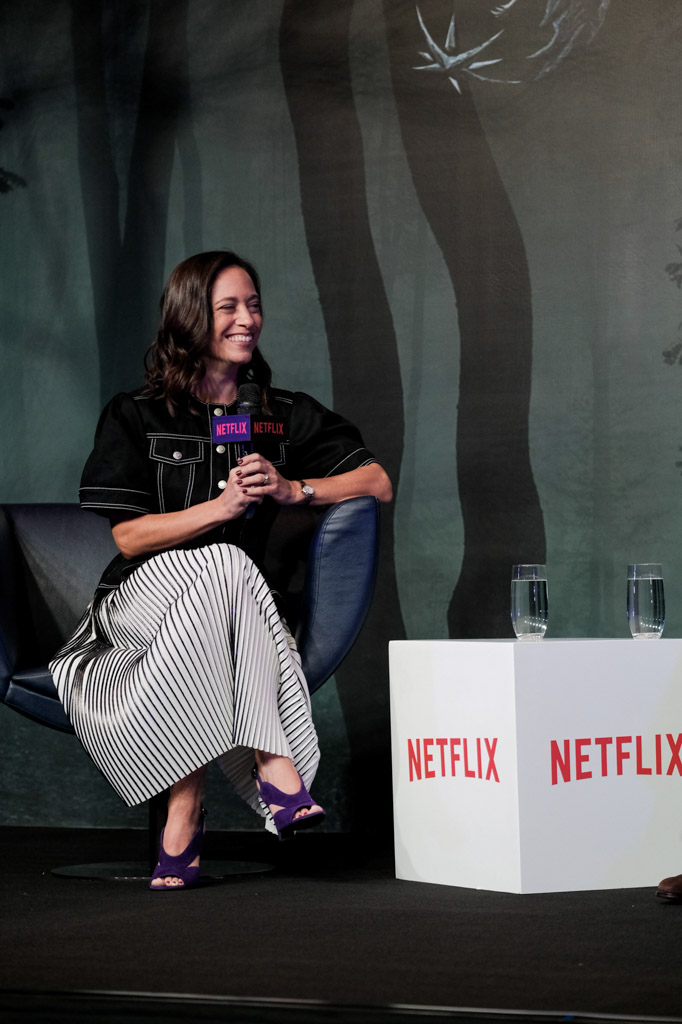
During MEGA’s roundtable interview with showrunner Lauren Hissrich, she talks about what made her say yes to the world of The Witcher, the multi-dimensional layers of the story’s female characters, and the similarities between this fantasy genre and the real world.
Lauren, whose previous credits include Netflix’s Marvel series Daredevil, The Defenders, and The Umbrella Academy, had already read the first Witcher book, The Last Wish, when Netflix asked her to be part of the project. She almost turned it down, but the reason for her ‘yes’ is what made the Netflix series promising to its global fanbase.
“I feel really strongly that taking on a project this big, with so many fans that are so passionately in love with it, should be honored in the right way,” says Lauren. “I’m not a fantasy writer, I don’t think I’m the right person to honor this. I don’t know if I can give the fans what they want. And Netflix–I love them for this–they sort of pushed back and said, ‘Don’t worry about the fans. Remember, tell us the story that you would tell.'”
Netflix, asking her about what her approach would be was what led to Lauren’s desire to dig more into the material. “What I realized, what I was thinking about was the monsters and magic. But in fact, this fantasy is about three people who are alone in the world…and then they find each other. And then they realize that they are what they’ve been looking for, and they’re destined to be a family. That’s something I knew I could write,” she shares.
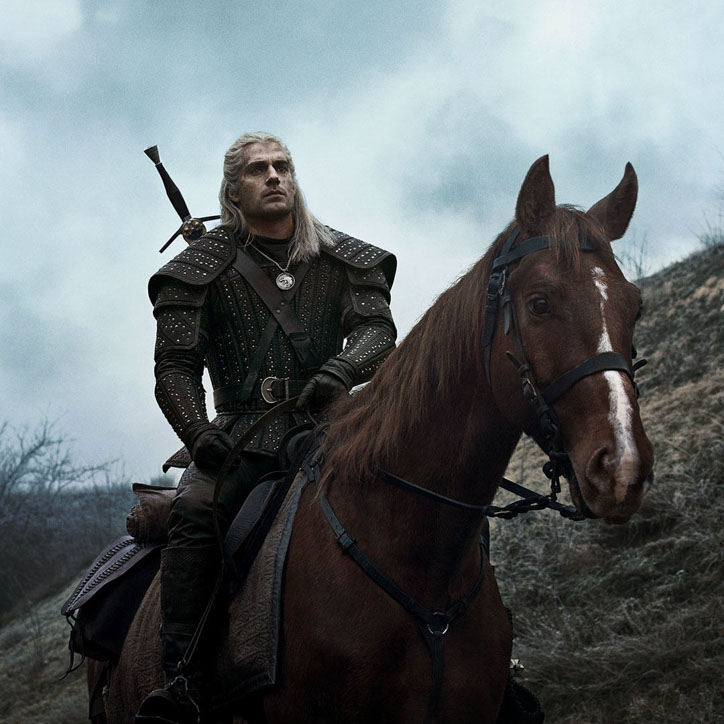
“The unexpected thing that I found was just how much I liked writing the monsters and magic, too! That was a new experience for me, and as a writer, I felt really up to the challenge,” Lauren says. She also doesn’t fail to mention the help she has gotten from being surrounded by other writers who loved writing in the fantasy genre.
“In addition, I started to interact with fans on social media. And this was a huge process for me. I went on Twitter and I wanted to learn what other people love about the show,” she says. “And I think that’s when fans realized I was a fan, too, it was when we realized we were excited about the same things in the show.”
Netflix giving Lauren her creative freedom was what made her feel supported in coming up with this new take on The Witcher, and one of the biggest storytelling shifts that Lauren made was setting the story of Yennefer and Ciri before they met Geralt.
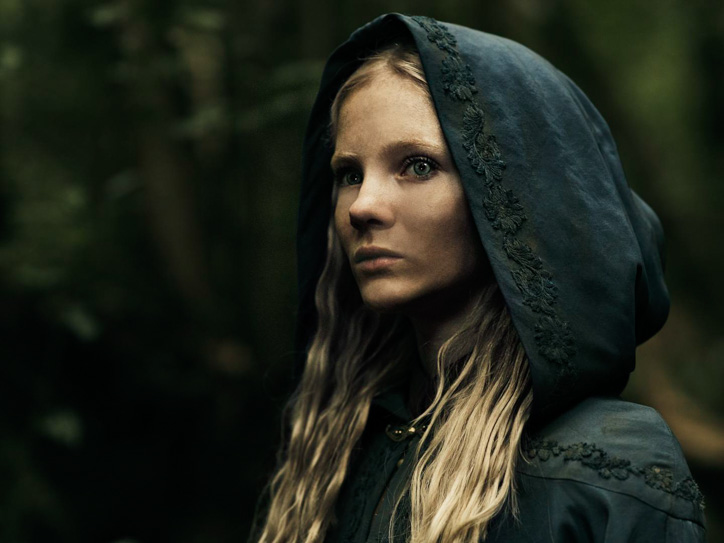
While Geralt is portrayed to be an indestructible monster slayer with no emotions, Lauren made sure to honor the strong female characters in the book while fleshing out the characters in her show. The two female leads, Yennefer (Anya Chalotra) and Ciri (Freya Allan) show two very different types of strength and independence.
“What I want to know when I pushed the series is where that came from, because I don’t want them to be idealistic, perfect women, and start to fill just that role. It’s like all of us, women and men, are multi-dimensional, layered, complicated. We all have damage, we all have things we’re trying to cover up. We all have vulnerabilities. So for these women, I wanted to know where that came from and that’s not explored in the books.”
She adds, “What I learned, not just from the women that were in the books, but also in watching Freya Allan and Anya Chalotra portray these characters, is that strength comes from a lot of different places and have a lot of different forms. So, for the men in the series, we see a lot of sword fighting and that’s like ‘male strength.’ What I love to see is the strength of these women and how it differs from that.”
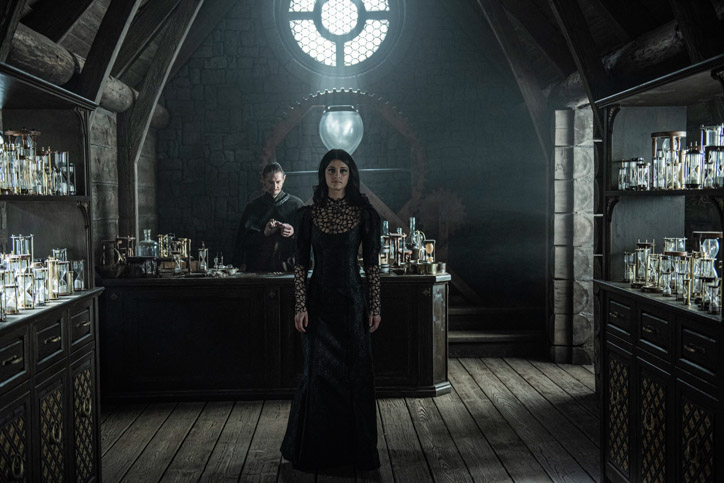
Talking about Yennefer’s strength, she says, “Yennefer has some great kick-ass fights where she gets to do that too, but her strength is in self-confidence. Her strength is in believing herself and that she has a place in this world even though her family told her she didn’t.”
Meanwhile, she shows the contrast of Ciri’s strength. “Ciri always felt like she had a place in this world, but when her whole family dies, she has to continue putting one foot in front of another. She’s a survivor, she has to keep going even though it would be much easier to pull up the ball and just give up.”
“To me, the lesson that we can find in the women in the show is that strength comes from a lot of different places and takes on a lot of different forms. There’s not just one way to be strong,” Lauren says.
When asked which part of the books she put into the show, she answered, “I knew I wanted to start with the short stories. The Last Wish is how I had fallen in love with the entire franchise, so I knew I wanted to start there. And then it was really a question of the order to tell them in. There’s not a linear narrative thread [in the short stories] that carry them through. They’re just sort of individual adventures. But when you’re writing a television show, you need to present characters, then you need to change them episode to episode. Every single event they go through has completed into the next episode…There were some iconic things we knew we couldn’t leave out, like a golden dragon.” She laughs before adding, “I think that fans of the games and the books will be able to see that we’re telling the stories, we’re just doing it in a slightly different way, which I think is fun and exciting.”
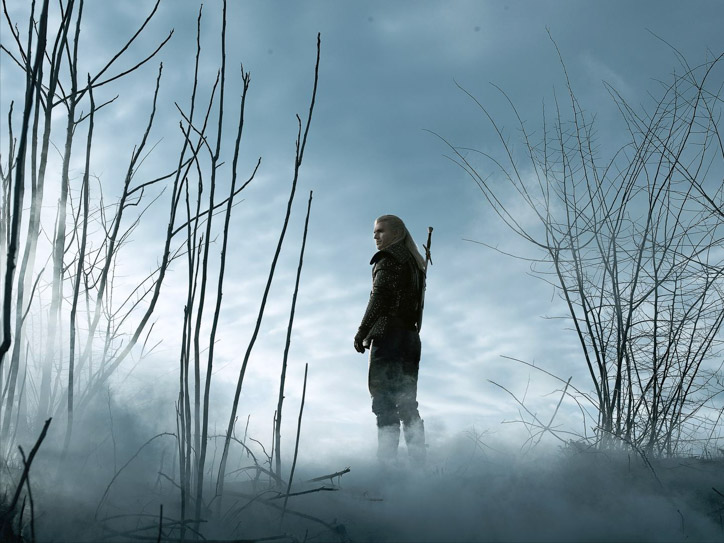
This is the fourth adaptation that Lauren has done for Netflix, but this is the first time she is delving into the world of fantasy. However, she shares that fantasy is just a different portrayal of the real world. “In fact, it has to reflect what we’re going through, or else you’re not going to want to be on that journey with these characters. So we don’t have monsters and we certainly don’t have the magic the way it looks in The Witcher, but we do have our three individual characters who are, for instance, feeling like they don’t belong.”
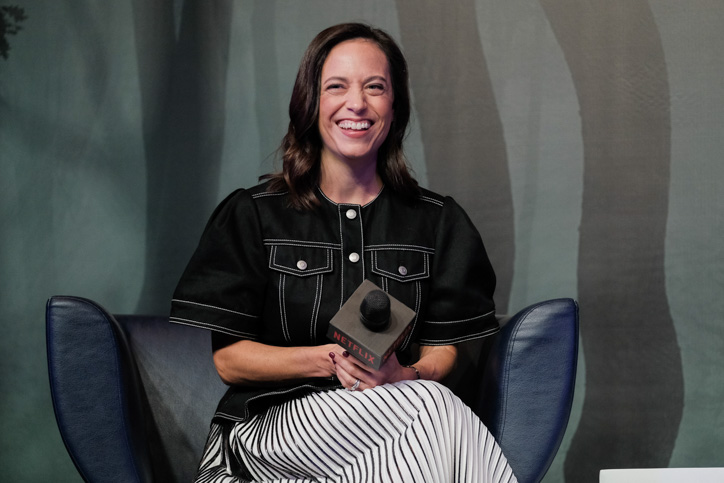
Comparisons from the real world come out naturally, so Lauren points out. “Because in any story that we’re telling with these characters, we should be able to relate to them, not just what they’re going through, but how they’re emotionally responding to it.”
A Netflix Original Series, The Witcher is available for streaming on Netflix now.
